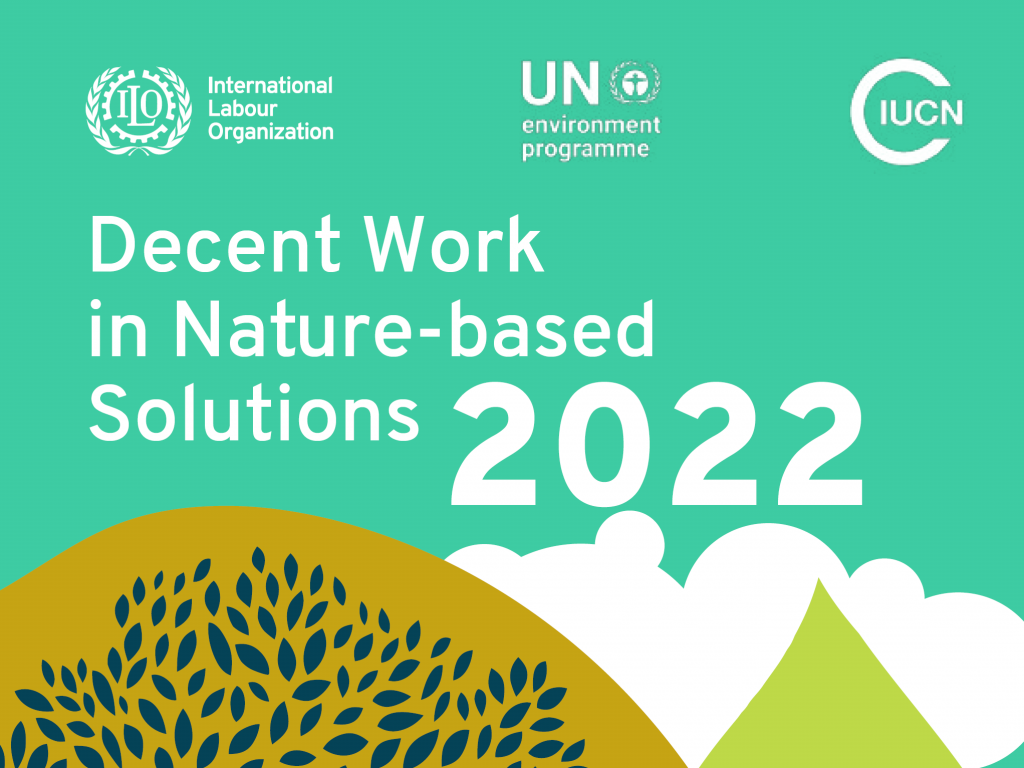UNEP-IUCN-ILO report: Nature-based Solutions could generate 20 million jobs with the right policies

Launched at COP15, the UNEP–IUCN–ILO report, Decent Work in Nature-based Solutions, provides a framework for assessing employment in NbS, with empirical evaluation of current and potential future global employment in NbS for the first time.
The report aims to fill knowledge and advocacy gaps on how transitions to a green economy will affect the world of work, and of the role that NbS can and do play in creating employment, especially for the poorest and most vulnerable people. The report is the first in a joint global biennial report series co-developed by the International Labour Organization (ILO), the UN Environment Programme (UNEP) and the International Union for Conservation of Nature (IUCN).
The report finds that currently, nearly 75 million people work in NbS activities, with the vast majority (96 per cent) living in lower-middle income countries in Asia and the Pacific, with nearly all NbS work (98 percent and 99 percent, respectively) is in the agriculture and forestry sectors. This contrasts to the majority of global NbS expenditure, which occurs in high income countries. Many of these NbS jobs are part-time, and total employment is estimated to be around 14.5 million full time-equivalent (FTE) jobs, although there are challenges in measuring NbS employment and this does not capture possible job loss and displacement from NbS implementation.
The report highlights that 20 million new jobs could be generated by tripling investment in NbS by 2030. To create decent work, especially for the poorest and most vulnerable, the report calls for the implementation of “Just Transition” policies. These include measures to incubate and support enterprises and cooperatives working in NbS, appropriate skills development, measures to help workers prepare for and get NbS jobs, universities that integrate NbS is their mainstream curricula, and policies that help NbS comply with core labour standards, including minimum wages, occupational safety and health, freedom of association, and use of social dialogue. A “Just Transition” ensures the economy is transformed in a way that is fair and inclusive, creating meaningful work opportunities and mitigating the risks to jobs and livelihoods that the transition to more sustainable practices will create in the short to medium-term. To aid transition from jobs and working practices that involve the unsustainable use of nature, such transition policies include:
- Job placement services.
- Public employment programmes.
- Re-employment training.
- Access to unemployment benefits.
- Early retirement.
- The use of and payment for ecosystem services (PES) programmes.
Supporting these findings, a Green Jobs for Youth Pact, launched by ILO and UNEP at COP27, aims to create 1 million new green jobs and to utilise the recommendations made in this report.
Read more about the findings and recommendations in the full Decent Work in Nature-based Solutions report.




